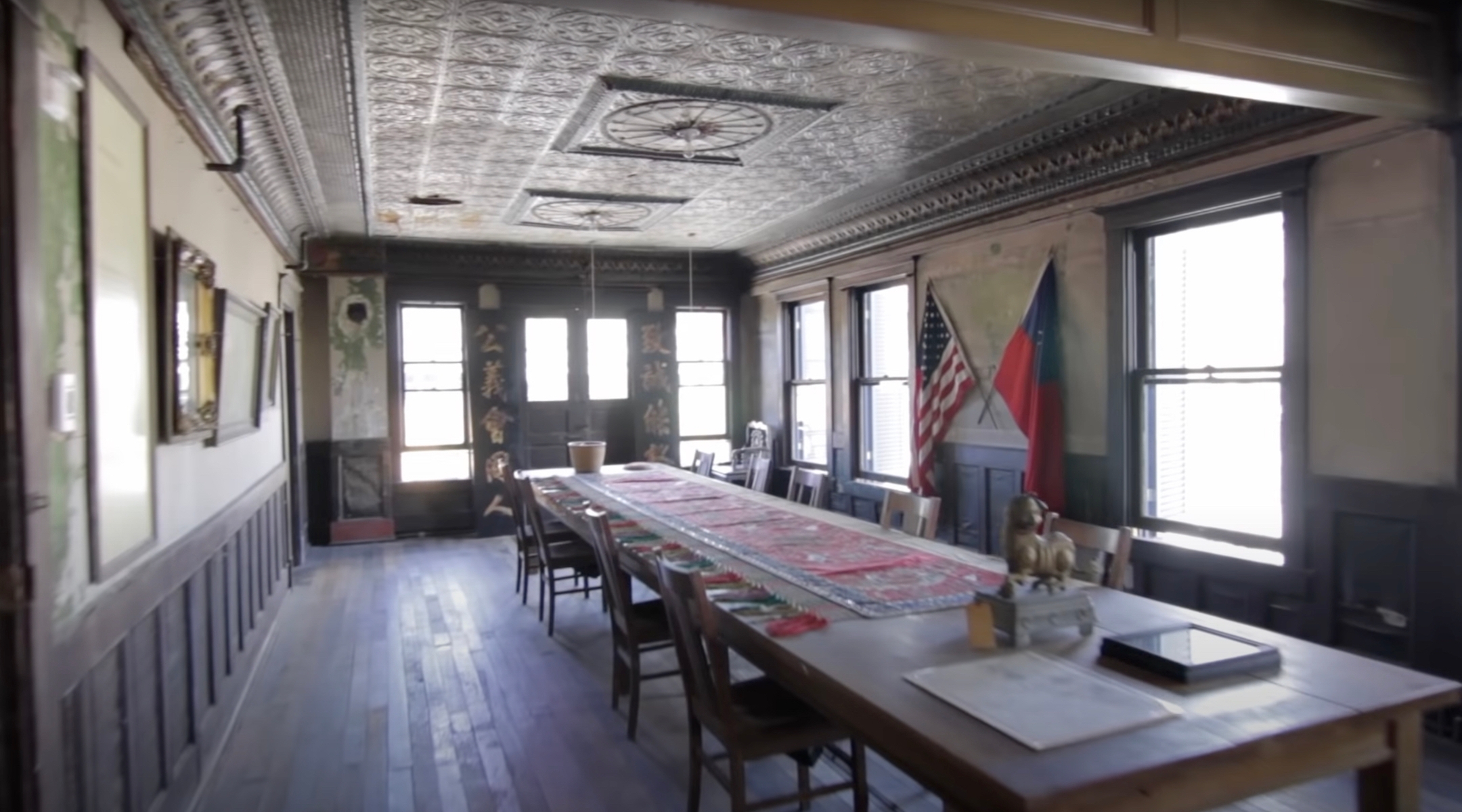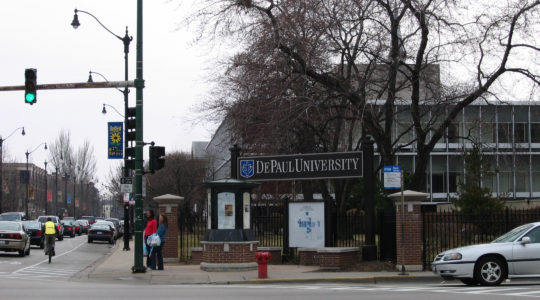After dozens of staffers at a Seattle museum walked off the job to protest an exhibit on antisemitism they claimed was “Zionist,” area Jewish groups and the museum all pledged that the exhibit would find a new home.
Months later, the Jewish groups are still planning to mount a version of the exhibit, called “Confronting Hate Together.” But they will do so without their original partners, the Black Heritage Society of Washington State and a museum dedicated to Asian American, Native Hawaiian and Pacific Islander heritage. Instead, the Jewish groups say the exhibit will be housed in a Jewish space.
The groups cited “circumstances out of our control” and said that the experience had left local Jews feeling isolated at a time of great need.
“Immense harm has been caused to the Jewish community by not being able to show the exhibit,” the Washington State Jewish Historical Society and the Jewish Community Relations Council of Greater Seattle said in a joint statement. “Antisemitism today is at its highest levels in over 40 years, and more allyship is needed to help meet the moment.”
The statement summarized a feeling that Jews in many quarters have expressed over the last 10 months, since Hamas attacked Israel and triggered an ongoing war that has induced tensions in countless museums, universities, cultural centers and workplaces. Many Jews have lamented not feeling the support they say they have shown to people from other backgrounds in the past.
“We need partners who are stakeholders in the safety and well-being of the Jewish people and who stand with us even when it gets hard,” the Jewish groups said. “Ironically, in an exhibit that was supposed to be about coming together to confront hate, hate has won. And, our community feels more alone as a result.”
The Jewish Historical Society had spent 18 months crafting the exhibit alongside the Black Heritage Society and Seattle’s Wing Luke Museum. Modeled after a World War II-era American Jewish Committee anti-hate campaign, the exhibit first opened at the Wing Luke in late May and included descriptions of how all three ethnic communities have experienced hate over the years.
But controversy quickly engulfed the project when 26 Wing Luke staffers walked off the job days later, claiming the parts of the exhibit that were focused on antisemitism contained material that “conveyed Zionist perspectives.” The museum promptly closed altogether, and the staff, declaring themselves “on strike,” launched a GoFundMe that has raised more than $11,000 to date.
Museum leaders announced the exhibit would be reconfigured and presented to the public at a different venue later in the summer. The Wing Luke’s executive director, Joël Barraquiel Tan, in a piece for the Seattle Times, shared what he said were “lessons learned” from the efforts to restage the exhibit, including, “Our best work happens when we offer platforms for complex dialogue and vulnerability to inspire civility, grace and understanding across differences.”
The reason the Jewish groups decided to go their own way stemmed from challenges surrounding the search for a new venue, the Jewish Historical Society’s director, Lisa Kranseler, indicated to the Cholent, an independent newsletter covering Jewish Seattle.
But the ultimate decision to pull back was the Jewish groups’, a representative for the Wing Luke Museum told the Cholent. “We are naturally disappointed that the Jewish Historical Society felt they needed to do that,” the spokesperson said.
A spokesperson for the Seattle JCRC did not respond to repeated requests for comment. In its own statement, the Black Heritage Society seemed to take issue with the Jewish groups’ narrative of events, noting their statement “questions our allyship and tenacity for when times get tough.”
“We have been good and tolerant partners,” the society’s president, Stephanie Johnson-Toliver, wrote. Johnson-Toliver concluded by thanking the Wing Luke museum and “the writers, editors, interns, consulting staff, and funders whose contributions have been great,” but did not mention the Jewish groups by name. (Asked for comment, the society directed JTA to the statement.)
In their objections to the original exhibit, the Wing Luke’s staff contingent, WLM4Palestine, cited portions that read “Today, antisemitism is often disguised as anti-Zionism” and spotlighted campus protests and the phrase “from the river to the sea.” Such passages, the staff allege on their GoFundMe page, “attempt to frame Palestinian liberation and anti-Zionism as antisemitism.”
On Instagram, they further alleged that the exhibit “sets a dangerous precedent of platforming colonial, white supremacist perspectives and goes against the Museum’s mission as a community-based museum advancing racial and social equity.”
Seattle Times columnist Danny Westneat argued that the staffers’ anger was misplaced, and had the effect of abandoning Jews.
“What the exhibit is saying is, don’t take your anger about the Middle East conflict out on local Jews, who are independent, freethinking humans,” he wrote. “For a highly fraught subject, this is pretty basic stuff.”
While decrying the staff response as “fueled” by “anti-Jewish ideas and attitudes,” the Jewish groups added that they had made “adjustments and modifications” to the exhibit following the walkout. They said this was done “to help people better understand the exhibit by clarifying language regarding the exhibition’s intent to focus on confronting hate locally by three historically redlined communities.”
A digital version of the exhibit with the original partners listed, including content focused on the Black and Asian-American experiences, is viewable on the Jewish Historical Society’s website. An accompanying podcast, released shortly after the museum staff walkout and featuring guests including the mayor of Seattle, is also still accessible.
Kranseler told JTA that the Jewish Historical Society was “still working with our partners on two additional panels that will explain the genesis of our collaboration on this exhibit and provide additional information regarding the history of our three communities working together.”
The digital version still includes language the Wing Luke staff had walked out over, such as the declaration that “Today antisemitism is often disguised as anti-Zionism.”
JTA has documented Jewish history in real-time for over a century. Keep our journalism strong by joining us in supporting independent, award-winning reporting.






